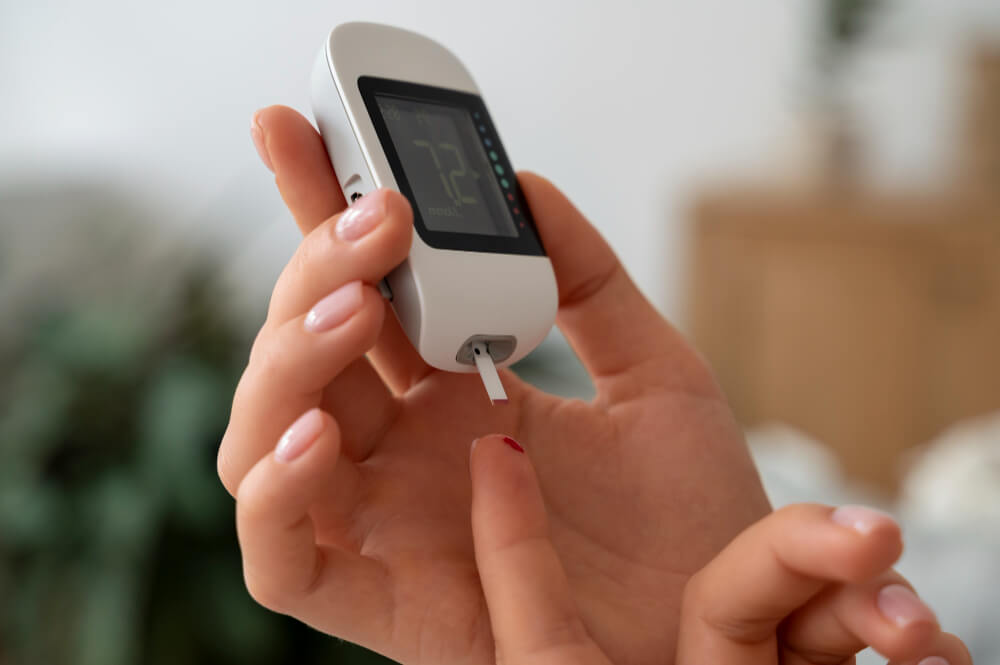Diabetes Symptoms: Get Tested & Manage Your Health
Diabetes is a chronic condition affecting millions of people worldwide. It occurs when the body either doesn’t produce enough insulin, a hormone that regulates blood sugar, or can’t effectively use the insulin it produces. This leads to high blood sugar levels, which can damage nerves, blood vessels, and organs over time.
The good news is, diabetes is manageable. Early detection and proper treatment can significantly improve your quality of life and prevent complications. This comprehensive guide explores the world of diabetes, delving into the different types, common symptoms, and effective management strategies to help you get tested, take control, and live a healthy life.
Recognizing the Signs: Common Symptoms of Diabetes
Early detection is crucial for managing diabetes effectively. Here are some common symptoms to watch out for:
- Excessive thirst and frequent urination: Your body tries to expel excess sugar through urine, leading to frequent urination and increased thirst to replenish fluids.
- Increased hunger and unexplained weight loss: Your body may be unable to utilize sugar for energy, leading to increased hunger despite weight loss.
- Fatigue and lack of energy: High blood sugar can leave you feeling constantly tired and sluggish.
- Blurred vision: High blood sugar levels can affect the lenses in your eyes, causing blurry vision.
- Slow-healing wounds: Diabetes can impair circulation and slow down the healing process of cuts, scrapes, or wounds.
- Frequent infections: High blood sugar weakens the immune system, making you more susceptible to infections.
It’s important to note that some people with diabetes, especially in the early stages, may not experience any noticeable symptoms. This highlights the importance of regular checkups and blood sugar testing, especially if you have risk factors for diabetes.
Unveiling the Different Types of Diabetes
Diabetes comes in different forms, each with its underlying cause:
- Type 1 Diabetes: An autoimmune condition where the body’s immune system attacks the insulin-producing cells in the pancreas. This means the body cannot produce insulin on its own.
- Type 2 Diabetes: The most common type, affecting over 90% of diabetes cases. In Type 2 diabetes, the body either doesn’t produce enough insulin or becomes resistant to its effects.
- Gestational Diabetes: Develops during pregnancy in some women due to hormonal changes. It usually goes away after childbirth but can increase the risk of developing Type 2 diabetes later in life.
Beyond the Symptoms: Risk Factors for Developing Diabetes
While anyone can develop diabetes, certain factors increase your risk:
- Family history: Having a close family member with diabetes increases your risk.
- Weight: Being overweight or obese is a significant risk factor for Type 2 diabetes.
- Physical inactivity: A sedentary lifestyle increases your risk.
- Age: The risk of Type 2 diabetes increases with age.
- Ethnicity: Certain ethnicities have a higher risk of Type 2 diabetes.
- History of gestational diabetes: Women who have had gestational diabetes are more likely to develop Type 2 diabetes later in life.
Taking Control: Effective Management Strategies for Diabetes
Living with diabetes requires commitment to healthy habits and proper management strategies. Here’s what you can do:
- Healthy Lifestyle: This is the cornerstone of diabetes management. It includes:
- Balanced Diet: Focus on whole foods, fruits, vegetables, and lean protein. Limit processed foods, sugary drinks, and unhealthy fats.
- Regular Physical Activity: Aim for at least 30 minutes of moderate-intensity exercise most days of the week. Exercise helps improve insulin sensitivity and manage blood sugar levels.
- Weight Management: Maintaining a healthy weight can significantly improve diabetes control.
- Blood Sugar Monitoring: Regular monitoring of your blood sugar levels helps you understand how your body reacts to food, exercise, and medications. This allows you to make adjustments to your diet and medications as needed.
- Medications: Depending on your type of diabetes and severity, your doctor may prescribe medications, such as insulin or oral medications, to help regulate your blood sugar levels. It’s crucial to take your medications exactly as prescribed and follow your doctor’s recommendations.
Building a Support System & Living Well with Diabetes
Remember, you are not alone in managing diabetes. Here are some resources and tips for building a support system and living well:
- Connect with your doctor: Regular consultations with your doctor are crucial for monitoring your blood sugar levels, adjusting medications, and addressing any concerns.
- Join a support group: Connecting with others living with diabetes can provide valuable information, emotional support, and motivation.
- Educate yourself: Learning about diabetes empowers you to make informed decisions about your health.


